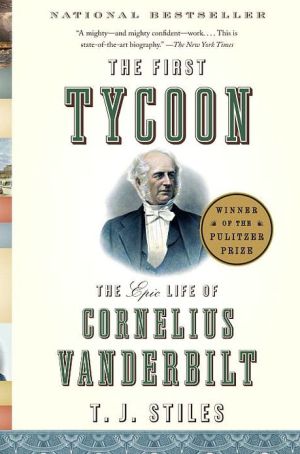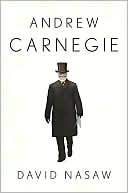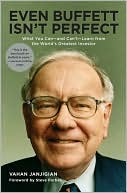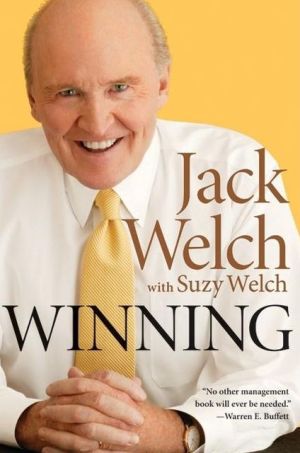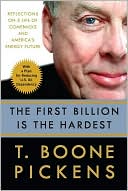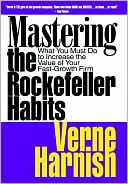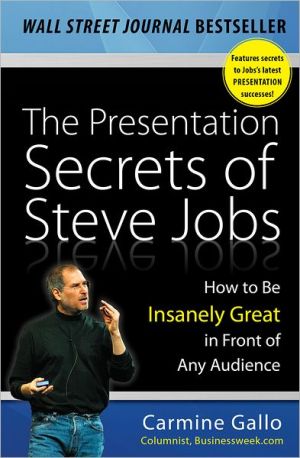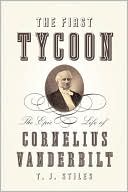Warren Buffett: Master of the Market
Warren Buffett is known as the billionaire investment expert of the century and everyone would love to know the secret of his success. In his own words, Buffett is just a regular guy who likes fast food, honest work, and people he can trust. Throw in incredible instincts, a genius for numbers, meticulous research, and an almost sure-fire investment philosophy, and you begin to understand how he's become a legend in his own time. With just a few thousands of dollars from relatives and...
Search in google:
Warren Buffett is known as the billionaire investment expert of the century and everyone would love to know the secret of his success. In his own words, Buffett is just a regular guy who likes fast food, honest work, and people he can trust. Throw in incredible instincts, a genius for numbers, meticulous research, and an almost sure-fire investment philosophy, and you begin to understand how he's become a legend in his own time. With just a few thousands of dollars from relatives and friends, and by taking calculated risks with small companies and staying with them, he managed, almost single-handedly, to turn Salomon Brothers around. Giants like Disney, American Express, McDonald's, Gillette, and Coca-Cola have all been affected by Buffett's magic touch, and he owns a chunk of all of them. By thirty-one, BUffett had already made himself a millionaire, and he's worked his way steadily toward the top of the Forbes list. Here is a fascinating portrait of Warren Buffett, known for his investigating genius, his sense of humor, and his mean turn of a phrase. It's an amazing story of a man who carved his own path through American business by doing his homework, backing companies he believed in, and growing rich on their success-a story that will show you that opportunity abounds for anyone willing to go for it.
Chapter One\ The Complete Investor\ By the time he was thirty-one years of age, Warren Buffett was already a millionaire.\ Twenty-one years later, in 1982, he was ranked Number 82 in the Forbes 400 list of wealthiest Americans. It was his breakthrough year on that list.\ By 1983 he had jumped up to Number 31 by doubling his net worth to $520 million.\ In 1985 he became a billionaire, worth some $1.07 billion, and was Number 12.\ By 1986 he had worked his way up to Number 5 on the list and was included by U.S. News & World Report on a list of one hundred people and families who owned the biggest stakes in America's publicly traded companies. There Buffett ranked eighth.\ In 1989, with $4.2 billion, Buffett was Number 2 on the Forbes 400 list.\ In 1993 Buffett finally reached Number 1, taking Bill Gates's position. With $8.3 billion, he was officially the richest man in America.\ Among the most amazing things about this plainspoken, sometimes witty, always sharply intelligent man was the fact that he did it all on his own without a fat inheritance to stake him. He did it by the simple means of investing money in successful companies.\ In several other ways Warren Buffett was an unfamiliar figure on the Forbes 400 list. For example, he did not take part directly in Wall Street maneuverings as most of his peers did. Instead, after a certain amount of exposure to Wall Street, he moved back home to Omaha, Nebraska, and from there did all his buying and selling.\ For that matter, in physical appearance he did not resemble his peers, either. Nor did he act like his competitors on the Street. Forwhatever reason, he clung tightly to the image of a rather humble, even simple, Midwestemer-homespun, humorous, ever ready with an aphorism to illustrate his point, the Will Rogers of Wall Street.\ After so many years of playing the homespun prophet, Warren Buffett had actually become that prophet-and it hadn't hurt him one bit.\ Honesty and integrity were the two most important elements in the man's character, according to one of his most trusted sources: himself, Warren Buffett. But it was not enough just to say that.\ In Buffettese it came out this way:\ "Never lie under any circumstances. Don't pay any attention to the lawyers. If you start letting lawyers get into the picture, they'll basically tell you, 'Don't say anything.' You'll never get tangled up if you just basically lay it out as you see it."\ On the other hand, Buffett was always hedging his more pointed aphorisms just a bit. "Never" became "hardly ever" in this tribute to See's Candy Shops, one of the companies he eventually owned, in which he told how "little white lies" don't always count:\ "When business sags, we spread the rumor that our candy acts as an aphrodisiac. Very effective. The rumor, that is; not the candy."\ Buffett also believed in loyalty-and expected it of the people with whom he dealt. In Buffett's book, when a friend was hurt, you went to bat for him. One anecdote proved his point.\ "I ate lunch at the Omaha Club--that's the downtownclub--and I noticed there weren't any Jews. I was told,'They have their own club.' Now, there are Jewish fami-lies that havebeen in Omaha a hundred years; they havecontributed to the community all the time; they havehelped build Omaha as much as anybody, and yet theycan't join a club that John Jones, the new middle-rankUnion Pacific man, joins as soon as he's transferred here.That is hardly fair.\ "So I joined the Jewish Club: it took me four months. They were a little put back and confused, and I had to do some convincing. Then I went back to the Omaha Club and told them that the Jewish Club wasn't totally Jewish anymore. I got two or three of the Jewish members to apply to the Omaha Club. Now we've got the thing cracked."\ Buffett always was upbeat about his work-that is, about investing his money. Did he like his work because it accumulated mountains of cash for him? Or was it something else? As a boy he had said:\ "It's not that I want money. It's the fun of making money and watching it grow."\ That was the key to Buffett's character: making money. He didn't care about having it around, or spending it. He just loved to make it. Once, he was spending time on the West Coast and went as a tourist to visit San Simeon, the gigantic mansion that William Randolph Hearst had built as a repository for millions of dollars' worth of collectibles from all over the globe. After a long session of sight-seeing with the talkative guide, Buffett finally burst out:\ "Don't tell us how he spent it. Tell us how he made it!"\ For Buffett there's an artistic element to making money, a literal sense of creation.\ "When I go to my office every morning, I feel like I'm going to the Sistine Chapel to paint."\ He could be comical about money, too.\ "[I] enjoy the process far more than the proceeds, though [1] have learned to live with those also."\ And, to cap it off, he did it his way.\ "My guess is that if Ted Williams was getting the highest salary in baseball and he was hitting .220, he would be unhappy. And if he was getting the lowest salary in baseball and batting .400, he'd be very happy. That's the way I feel about doing this job. Money is a byproduct of doing something I like doing extremely well."\ Vive le by-product!\ Warren Buffett's down-home dietary habits were deeply ingrained in him as a child, and after he grew up, it was obvious that nothing could change them. He quite honestly said:\ "My ideas about food and diet were irrevocably formed quite early-the product of a wildly successful party that celebrated my fifth birthday. On that occasion we had hot dogs, hamburgers, soft drinks, popcorn, and ice cream."\ Warren Buffett. Copyright © by Jay Steele. Reprinted by permission of HarperCollins Publishers, Inc. All rights reserved. Available now wherever books are sold.

